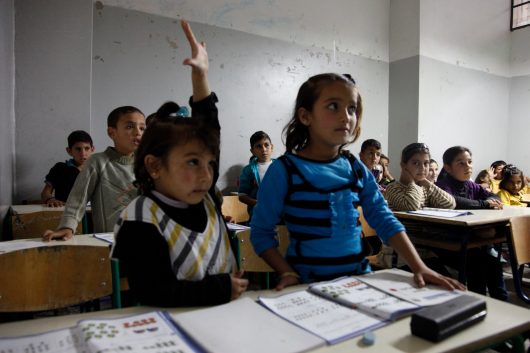U.N. Creates The First Humanitarian Fund for Refugee Education


The fund’s name conveys the urgency of providing continued education for about 30 million displaced children worldwide—especially since the total number of refugees has reached its highest levels since 1945.
Considering that an average refugee stays about ten years in a foreign country, Education Cannot Wait will offer a five-year curriculum. Although based on a traditional primary school model, it will also adopt experimental methods like online learning in order to reach the greatest number of children.
The initiative offers an extension to the education supports recently promised to Syrian refugee children. In early 2016, the Regional Refugee and Resilience Plan (3RP) under UNICEF launched the No Lost Generation initiative that includes long-term efforts to rehabilitate displaced communities through school education and civic engagement programs.
As a result, 442,000 children across Lebanon, Jordan, Iraq, Turkey and Egypt gained access to a formal education.
Education Cannot Wait will also target areas such as Nepal, where 900,000 children lost access to education after the earthquake in 2015, as well as South Sudan and Nigeria, where rates of enrolled students remain low due to frequent internal conflicts.
While the majority of refugees in these states are internally displaced and remain within their mother country, their hardship in finding basic resources and a stable education is equivalent to that of stateless persons.
UNESCO’s policy paper found that more than half of the world’s refugees living outside camps have also often been neglected from data documentation and support.
UN Special Envoy Gordon Brown told reporters that Education Cannot Wait “will be the first to bridge the gap between humanitarian aid and development aid.”
Currently, the UN invests less than two percent of emergency funding to education, according to the Office for the Coordination of Humanitarian Affairs (OCHA) – the new program aims to raise total budget of $3.85 billion.
This first humanitarian fund for refugee education is to be funded by a collaboration between private sector enterprises and over 100 philanthropists.
– Haena Chu
Photo: Flickr
